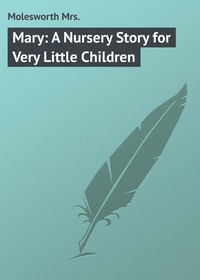Kitabı oku: «Mary: A Nursery Story for Very Little Children», sayfa 2
Bir şeyler ters gitti, lütfen daha sonra tekrar deneyin
Türler ve etiketler
Yaş sınırı:
12+Litres'teki yayın tarihi:
19 mart 2017Hacim:
120 s. 1 illüstrasyonTelif hakkı:
Public Domain